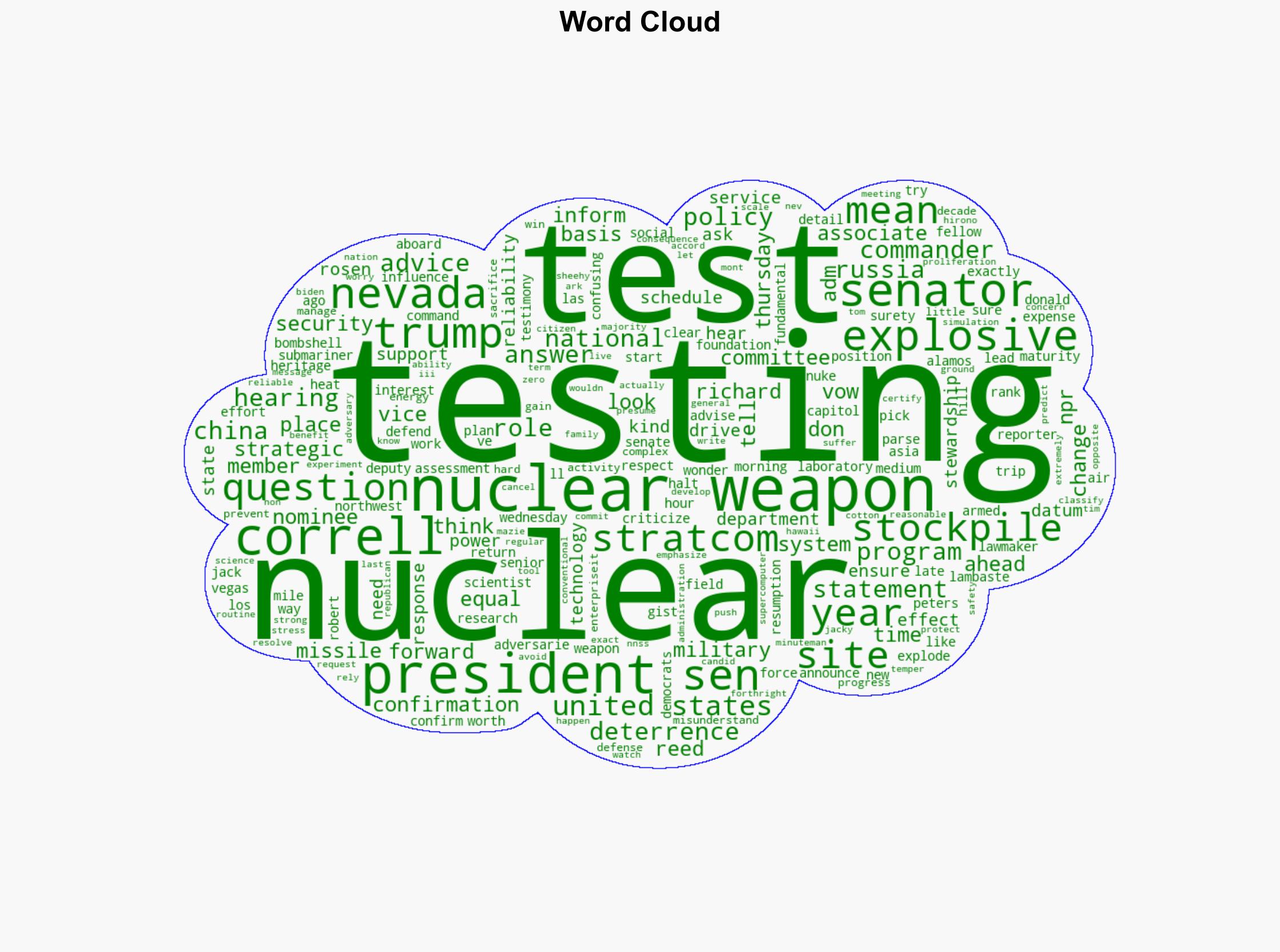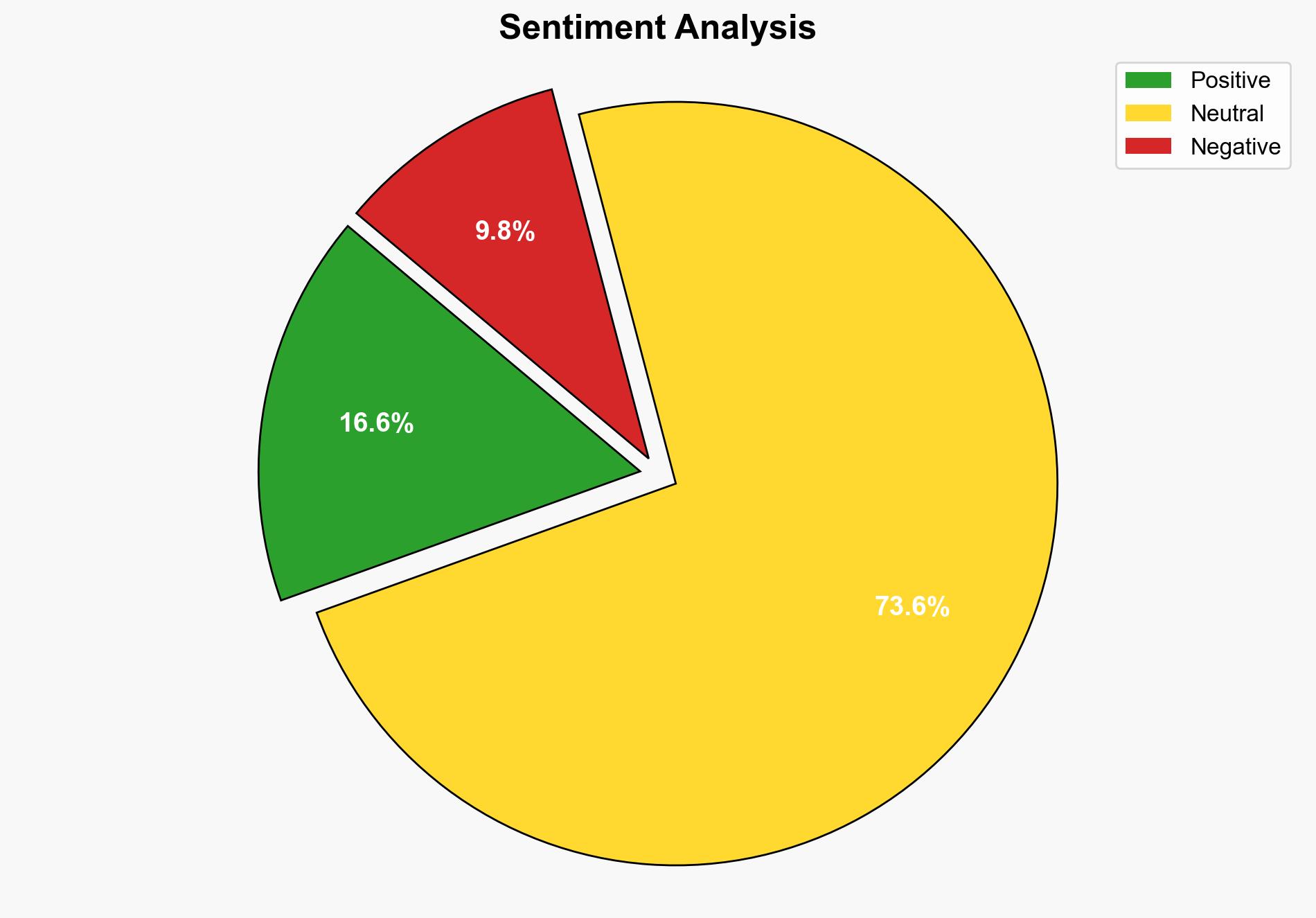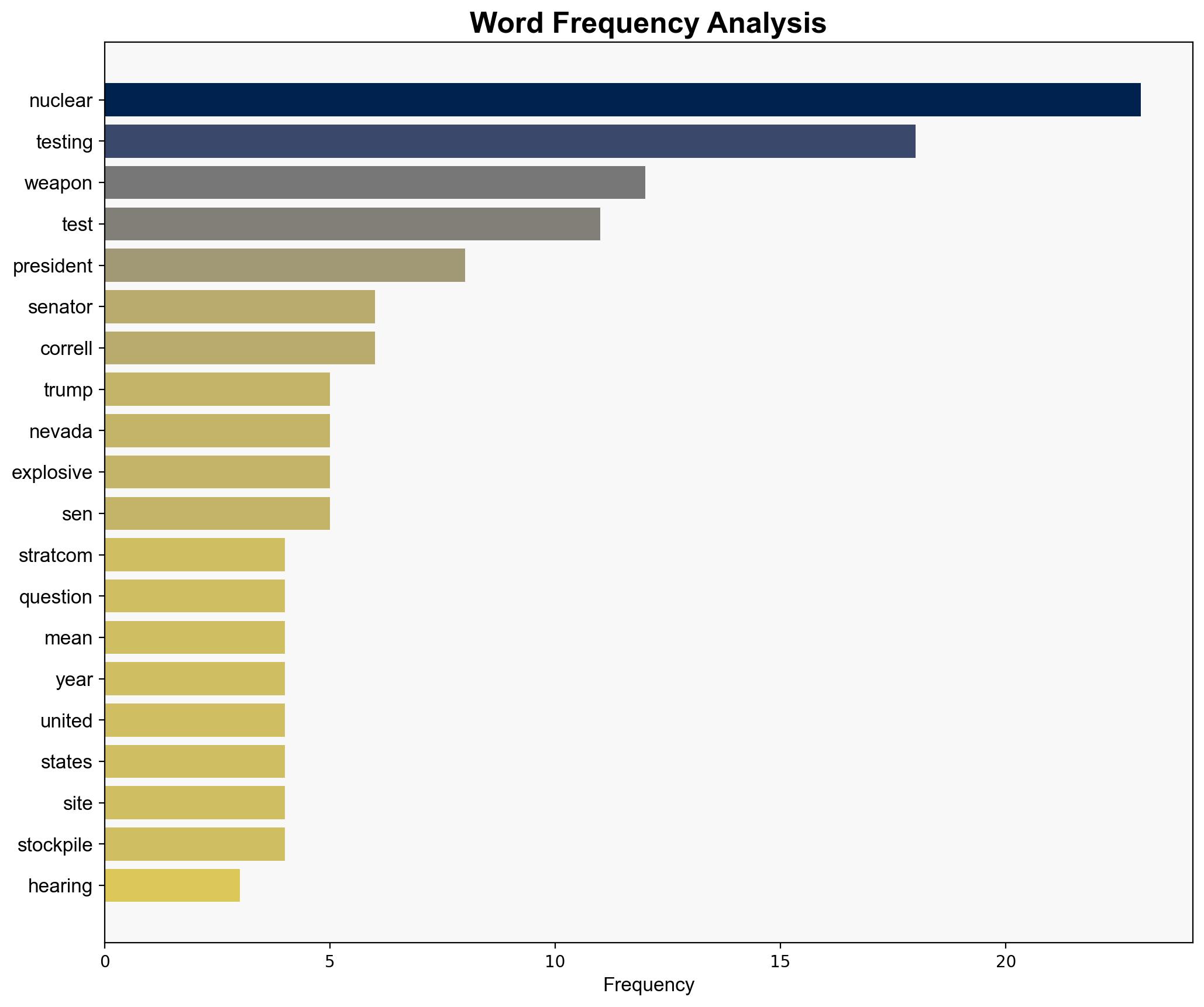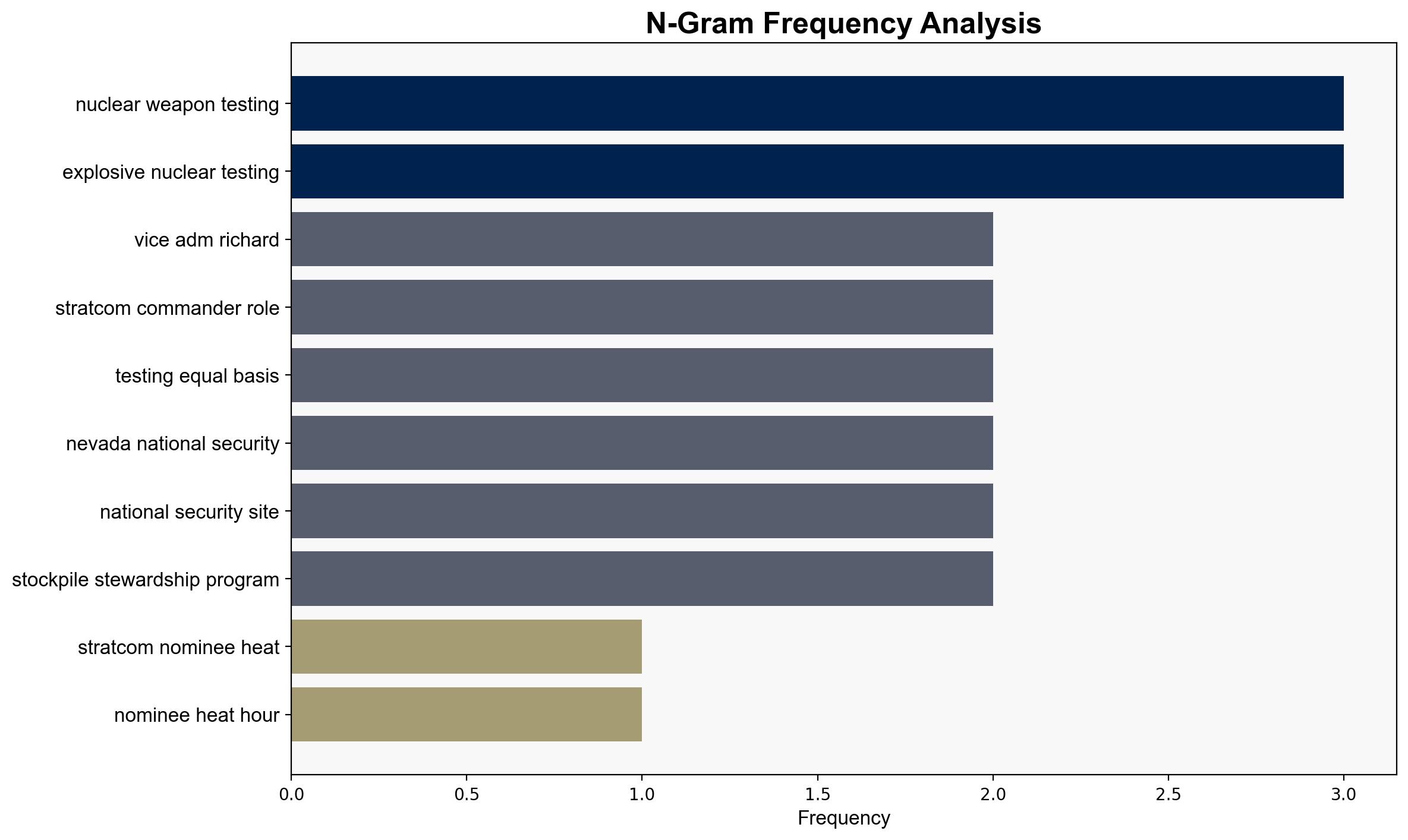STRATCOM nominee takes heat hours after Trumps nuclear-test bombshell – Defense One
Published on: 2025-10-31
Intelligence Report: STRATCOM nominee takes heat hours after Trump’s nuclear-test bombshell – Defense One
1. BLUF (Bottom Line Up Front)
The most supported hypothesis is that President Trump’s statements on nuclear testing are primarily a strategic maneuver to influence geopolitical adversaries, rather than an immediate policy shift. This hypothesis is supported by the lack of detailed plans and the emphasis on maintaining the current stockpile stewardship program. Confidence level: Moderate. Recommended action: Monitor for policy developments and prepare strategic communications to manage international perceptions.
2. Competing Hypotheses
1. **Strategic Maneuver Hypothesis**: President Trump’s comments are intended to signal strength and deter adversaries like China and Russia without an actual shift in nuclear testing policy. This is supported by the absence of specific plans and the nominee’s emphasis on existing programs.
2. **Policy Shift Hypothesis**: The administration is genuinely considering resuming nuclear testing to modernize the arsenal, as indicated by the President’s public statements and the nominee’s non-committal responses to senators’ inquiries.
Using ACH 2.0, the Strategic Maneuver Hypothesis is more supported due to the lack of concrete plans for testing and the nominee’s focus on the stockpile stewardship program.
3. Key Assumptions and Red Flags
– **Assumptions**: The Strategic Maneuver Hypothesis assumes that the administration is aware of the international repercussions of resuming nuclear testing and is using rhetoric strategically.
– **Red Flags**: The lack of clarity in the President’s statements and the nominee’s responses could indicate internal policy disagreements or a lack of a coherent strategy.
– **Blind Spots**: Potential undisclosed internal discussions or classified plans that could indicate a real policy shift.
4. Implications and Strategic Risks
– **Geopolitical Risks**: Resuming nuclear testing could provoke a new arms race, destabilize international arms control agreements, and strain relations with allies.
– **Economic Risks**: Increased defense spending on nuclear testing could divert resources from other critical areas.
– **Psychological Risks**: Public and international perception of the U.S. as a destabilizing force could increase.
5. Recommendations and Outlook
- **Mitigation**: Engage in diplomatic outreach to reassure allies and clarify U.S. intentions regarding nuclear testing.
- **Exploitation**: Use strategic communications to reinforce deterrence without escalating tensions.
- **Scenario Projections**:
– **Best Case**: The rhetoric strengthens deterrence without actual testing, maintaining strategic stability.
– **Worst Case**: Testing resumes, leading to global proliferation and heightened tensions.
– **Most Likely**: Continued ambiguity with no immediate testing, but increased pressure on strategic communications.
6. Key Individuals and Entities
– Donald Trump
– Richard Correll
– Jack Reed
– Mazie Hirono
– Jacky Rosen
7. Thematic Tags
national security threats, nuclear policy, geopolitical strategy, U.S.-China relations, U.S.-Russia relations





